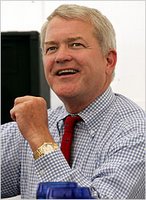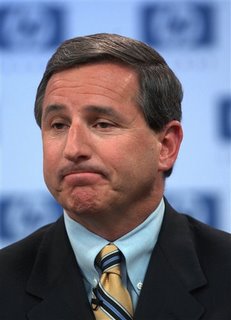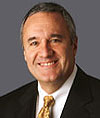
I just read yet another mawkish elegy to daily newspapers which, as usual, blamed the demise of a centuries-old tradition on their owners’ insistence that at least a smudge of black ink show up on the books.
David Carr is the latest in the string,. His piece for the New York Times typifies the lot. He wonders what kind of newspaper his young, talented colleague will find when he returns to the Philadelphia Inquirer from a two-month summer vacation. Carr answers by observation: “While we had our own version of The Conversation, a lucky pigeon in front of us found a lone chip in a foil bag, but it was quickly lost amid a crush of others rushing in for a taste.”
Like the other mourners, Carr conjures up halcyon days when newspapers such as the Inquirer were paragons of a money-be-damned business, “a sprawling enterprise with bureaus all over the world and a sniper’s mentality on the news….” Few newspapers ever operated that way and I hope most journalists reject the image of themselves as people who sneak around and kill in cold blood.
Carr’s piece is the latest in a long string of tales filled with the drama of deadlines, and anecdotes about the revered editor who bucked corrupt officials or the raffish columnist who drank more often than he wrote, all expounded to make themselves feel more important and to impress the uninitiated.
They all reference in some way a belief that newspaper owners have turned their priorities around 180 degrees to favor profits over journalism. Some publishers once placed a higher premium on quality news coverage than they do today, but to contend profits weren’t their overriding concern is naive.
In one way or another, Carr and his fellow mourners all equate the decline of their newspapers with a demise of quality journalism itself. That is not true and only serves to damage their credibility as observers of the world. There are two obvious conclusions to be drawn and newspaper types don’t want to see them.
The first is simple. Newspapers cost a great deal of money to produce. They are labor intensive in all respects, take a long time to manufacture, and must be delivered by hand, one at a time. Electronic media are as inexpensive as a $600 computer and deliver the news instantly (and constantly refreshed) to tens of thousands of people.
The second conclusion is offered by the readers themselves. Newspaper circulation overall is shrinking because people are tired of the medium. By the time they pick up their morning newspaper they have seen and heard far more about the Indonesian earthquake, the primary election results or the verdict in the Enron trial than they can process. And they know about these events from the same sources used by newspapers.
There is nothing to prevent Carr’s young friend from carving out an excellent career in journalism and benefiting society with his trenchant analysis and observations. The young journalist’s work will also be seen and appreciated by far more people and internationally. His output, though, will be expressed in pixels, not ink. And, no, he won’t have to scramble for crumbs, either.
People being people, though, Carr’s friend will eventually conjure up nostalgic sighs about the good old days when “we had to work with laptops that couldn’t send a story faster than 128 KBps upstream and cell phones with only four hours of talk time.” Whether that will be seen as romantic to anyone remains to be seen.
 Matt Miller wrote in Fortune about a way to make corporate financial results more transparent as well as erode the notion that social benefits, particularly healthcare, should be tied to employment.
Matt Miller wrote in Fortune about a way to make corporate financial results more transparent as well as erode the notion that social benefits, particularly healthcare, should be tied to employment.



















